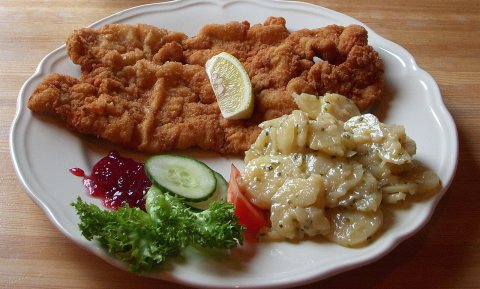Greep retail op inkoop beperken
De EVP roept de Europese Commissie op met maatregelen te komen die de positie van boeren en tuinders in de keten te versterken.
Allereerst noemt het plan een reeks maatregelen om de greep van supermarkten op hun inkopen in te perken. Overproductie moet kunnen worden aangepakt, desnoods door overheidsingrijpen. Overproductie moet aan minder gefortuneerden in de samenleving worden aangeboden.
Dierlijke vetten
Opvallend is de steun voor de dierlijke vetten die in de EU worden geproduceerd. Ze moeten van de EVP zodanig worden gepromoot dat uiteindelijk de import van plantaardige vetten (palmolie) van buiten de EU stilvalt. Boeren moeten sneller betaald worden door afnemers en de beschikbaarheid van (overbruggingskredieten) moet worden verruimd. Het reddingsplan zou gefinancierd moeten worden met de superheffingsgelden op overgeproduceerde melk die vorig jaar zijn geïnd. Het gaat om een bedrag van ruim €800 miljoen. Van dat bedrag is €500 miljoen al gebruikt voor het crisismaatregelenpakket van september vorig jaar.
Vijftien punten
Het plan bestaat in totaal uit 15 in het Engels opgestelde punten:
1. Ensuring a level playing field within the internal market is of paramount importance for EU agriculture, particularly for the family farms which are the backbone of our rural communities. The EPP Group calls for immediate action to address the imbalance of power between producers and the retail sector.
- We need to urgently examine the degree of retailer concentration and commercial practices across the EU in order to propose new EU legislative measures to tackle Unfair Trading Practices (UTPs) in the food supply chain. Anti-trust and competition rules must not allow individual retailers to have a dominant position in national or regional markets.
- We should abolish the parallel system of an ever-increasing number of certification bodies - operated by the retailers themselves and costly for producers; these are in practice taking over from the state the supervision of the food sector on the basis of rules which they themselves set, which damages the producer’s interests.
- Competition and anti-trust measures must make it impossible for the retail sector to unilaterally terminate contracts when prices are falling. When prices are set, net-net prices are required to prevent non-transparent discounting. All systems requiring fees to be listed as a retailer supplier should be abolished and forbidden.
- The proper implementation of the “Late Payment Directive” should be checked and a revision made if necessary. A maximum 30-day payment deadline, which may not be altered through individual contracts, should be set, made necessary across all trade areas in the food sector and legally enshrined at EU level. Individual Member States may allow shorter deadlines.
- We must ensure that delivery contracts between market stakeholders - farmers, cooperatives, dairies, processors - with the retail sector should be 12 months or longer. Within these contracts, a maximum six-month period for price setting should apply, unless a longer period is explicitly requested by the producers or dairies. Priority access for local producers to grocery stores and supermarkets should be facilitated.
- All private retailer own-brands available in Europe must be clearly labelled to indicate who the producers are. The brand name of the producer or - in case there is no brand name - the company name, should be displayed on the packaging with at least the same prominence as the retailer own-brand. The EPP Group believes that this matter must be a priority for the “Supply Chain Initiative”.
2. As an immediate measure, we call for the permanent reintroduction of support for butter fat for use in ice cream and bakery products, with the aim of permanently replacing palm oil, which is imported from third countries and sometimes produced under environmentally questionable conditions. This support proved to be very successful in the past.
3. The current intervention system is too static. The Commission is therefore called upon to propose a new “ad hoc” intervention system to flexibly remove, according to market conditions, the necessary quantities of butter and skimmed milk powder in a quick and unannounced procedure, at market prices. We call for a flexible mechanism for deciding on the possible temporary raising of intervention prices and increasing of private storage aid.
4. The EPP Group calls on the Commission to propose, on a temporary basis, EU-wide compulsory and non-bureaucratic measures to reduce milk production.
5. Specific aid for processors and for the production and promotion of high-quality products in disadvantaged regions, such as mountainous and outermost regions, must be introduced.
6. The EPP Group strongly supported the establishment of the Milk Market Observatory, welcomes the creation of a Meat Market Observatory and calls for the extension of market surveillance instruments to other sectors, such as fruits and vegetables. The Commission should examine the level of import tariffs on fertilisers, together with overall production costs, including plant protection products. We support the idea that market observatories should be proactive in preventing market crises by incorporating early warning mechanisms.
7. The Agri Markets Task Force must make a concrete contribution to uncovering UTPs and optimising market instruments. Specific national measures must not interfere with the functioning of the internal market.
8.The EPP Group recognises that the Commission made use of superlevy receipts to make €500m available to the Member States to assist farmers. However, as a substantial part of this amount has not been used, the EPP Group proposes that the unspent funds should be used for measures to relieve markets.
9. The EPP Group calls for bridge financing and loan guarantees to help farmers with cash flow problems. Full use must be made of all instruments existing at EU level in order to facilitate farmers’ access to credit and investment, including through the European Investment Bank (EIB), European Fund for Strategic Investments (EFSI) and the Rural Development and Cohesion Funds. Farmers should be granted access to private funding and to funding instruments such as crowdfunding.
10. To alleviate the difficulties on the pigmeat market, the Commission should allow temporary production limits in this sector if necessary. The standard scheme for private storage should be reopened in due time and other appropriate measures should be implemented in line with the development of pigmeat prices.
11. The Commission is called upon to enable Member States not affected by an animal disease to issue the veterinary certificates necessary for the export of pork products in case of phyto-sanitary embargos.
12. The EPP Group considers that the proposed measures to deal with the market crisis in the fruits and vegetables sector are highly insufficient. In particular, withdrawal prices should be updated as current support covers only 20% of the average market price. The EPP Group calls on the Commission to increase promotion funds for beef products and to continue to open new markets abroad.
13. We urge the Commission to make EU products available to the most deprived people in the EU and to third countries in need of emergency support, as part of our external humanitarian aid.
14. International trade offers our farmers considerable opportunities. However, in all trade agreements a positive reciprocity should be achieved, in particular with our major trade partners, on standards in consumer protection, animal welfare and environmental protection, as well as minimum social standards. All imported agricultural products should meet EU standards. The protection of our Geographical Indications must be a priority.
15. The EPP Group welcomes the efforts by European Commissioner Phil Hogan to open new markets. Non-tariff barriers should come down. The EPP Group calls for a rapid introduction of supplementary EU-wide export guarantee/credit tools, in cooperation with the EIB, which could supplement schemes being operated by the Member States.
As we face up to the current crisis, we should remember that the medium to long-term prospects for agriculture are positive. Estimates suggest that increased agricultural production will be necessary to feed a constantly-growing world population. Innovation in EU agriculture will be key. Encouraging young people to enter the farming sector is a challenge which must be met. The EPP Group is fully committed to helping our farmers through these difficult times. We will continue to play an active part in assisting our farmers to cope with market turbulence.
Op 3 augustus krijg je nieuwe kado-artikelen.
Als betalend lid lees je zoveel artikelen als je wilt, én je steunt Foodlog












Volgens varkensboerin en Europees parlementariër Annie Schreijer-Pierik wordt het plan van de EVP goed ontvangen in het Europese parlement. Dat valt te lezen op Boerenbusiness.